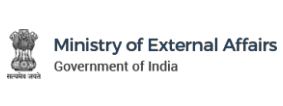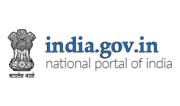Transcript of the Press Conference by Foreign Secretary Mr. Shivshankar Menon at the Embassy of India, Washington, DC
Washington, DC
May 1, 2007
Mr. Rahul Chhabra: Welcome. It gives me great pleasure to welcome the Foreign Secretary of India, Mr. Shivshankar Menon, here in Washington. He’s been here for two days now and had several meetings across the two days. I request him to brief us on these meetings and so please keep your questions to the end. We also have Mr. Ronen Sen, Indian Ambassador to the United States here with us, along with DCM Mr. Jassal. Just a note to keep your cell phones on silent mode, please. Thanks. I request Foreign Secretary Menon to now take the mike.
Mr. SHIVSHANKAR MENON: Good evening, ladies and gentlemen. As you know, I’ve been here yesterday and today. I thought I’d just give you a brief rundown over what I did, and then I’d be happy to answer any questions that you might have.
We started the day yesterday with the India-U.S. Global Issues forum. We did the fifth meeting of the forum. This is a forum with Undersecretary Paula Dobriansky. This is a forum where we discuss issues of global significance, things like democracy, environment, and climate change. We have discussed HIV/AIDS, for instance, and these are areas where over time, we have developed several – we’ve found several areas of congruence where we can work together. We’ve developed several projects. For instance, the idea of the UN Democracy Fund – we first discussed it – it first came up in this forum. We also set up the Asia Pacific Partnership for Clean Development and Climate, which as you know is working on much more energy efficient technologies for steel, for cement, for energy production as well. So we had a broad discussion of these issues. We found that there were several areas where we think we can cooperate together, India and the U.S., and we’re looking forward to doing that in the years to come.
After that, yesterday evening and most of today I spent with Undersecretary Nick Burns. We did three things. We discussed some bilateral issues, we covered regional issues, issues in our region, in South Asia, also in Asia as a whole, and some other issues, some larger issues. And we also discussed the 123 Agreement, the India-U.S. civil nuclear bilateral cooperation agreement. In all these, we had very productive discussions. On the 123, we think we’ve made considerable progress forward, and we now expect to welcome Undersecretary Burns to India later this month, in the second half of this month, and we hope to finalize this as soon as we can.
On the regional issues, I think maybe it’s best if I leave these things for you to ask questions about them, and I’ll tell you, depending on your interest. But overall, as far as I’m concerned, it’s been a very productive, very useful two days in Washington, DC, and I think we’ve made progress on all fronts. I think it’s a measure, really, of how the relationship has been transformed in the last few years, that we come in, do our business, move our relationship along in all respects, in terms of exchanging views, in terms of working together, seeing where there is congruence between our policies, and also in moving forward our bilateral agenda in which the 123, as you know, is a very important part. I am open to questions.
There is one other thing. I called on the Secretary of State, Secretary of State Rice, in the afternoon. I had a very good meeting with her where we looked at the broader relationship and expressed satisfaction at how it had developed over the last few years, and her own contribution, as you know, to this process has been considerable. In fact, a lot of it wouldn’t have been possible without her, without her guidance and help to the relationship. I’d be happy to answer questions.
MR.Chhabra: Please introduce yourselves and then we’ll have the questions. We’ll start with Carol.
Q: Carol Giacomo from Reuters. Could you tell us specifically how you have resolved the three issues at the – the three obstacle issues at the heart of the 123 Agreement: testing and United States requirement that if testing occurs, U.S. material would be – cooperation would be halted, reprocessing, and the question of prior consent?
MR. MENON: I have a deal with Nick Burns that we’re not going to get into the issues until we’ve solved them all. When we have an agreement, we’ll tell you all about it.
Q: Are you as –
MR. MENON: And I’m not going to get into individual issues at this stage. Frankly, there’s no point because there’s no point trying to negotiate issues, no matter how close we are or even if we’ve solved them, through the media.
Q: The United States, in a statement, has suggested that you could finalize this by the end of the month. You said you’d made progress; are you as confident that it could be over by the end of May?
MR. MENON: I think we’re both confident that we can do this, and we both want to do it very quickly, the quicker the better.
Q: Aziz Haniffa from India Abroad. I’ll give it a try too; knowing the quintessential diplomat you are, you’re not going to share your constructive ideas, nor the progress, extensive progress, but this is sort of déjà vu all over again. Nick Burns, about three or six months ago, also said that 123 is a formality, it’s a technicality, you know. What’s this you keep asking about 123? And then for the first time, we’ve had the quintessential diplomats like Nick Burns publicly talking and using the word frustration. I’m going to try, as Carol did. What I mean is, there are domestic political compulsions in India, too, so how confident are you that because there is a certain concern in industry, et cetera, that, and I’m sure Ambassador Sen is also hoping this is completed on his watch.
MR. MENON: I think it’s doable and I’m sure that we can do this, but as I said, we’ve made considerable progress. We still have issues to settle, and until we settle them all, I’d rather not get into saying which ones, how much, where, but I think it’s doable, and we’d like to do it as quickly as possible.
Q: Sir, let me try my –
(Laughter.)
MR. MENON: Okay, three times, okay?
Q: Yeah, three times.
MR. MENON: One, two and three, that’s right.
Q: One, two three.
MR. MENON: Yes, that’s it, that’s good.
Q: Sir, from a phase of being frustrated, supposedly you’ve moved into a phase of finalizing as soon as we can. Could you please walk through what made you, between three days back when Americans were frustrated and today? You have apparently come with a lot of constructive ideas.
MR. MENON: I think you should ask the people who were frustrated, and I don’t think I ever said that.
Q: So the Indians have never been frustrated in this process?
MR. MENON: Did I ever say that?
Q: No, no, no, no. I’m just asking you.
(Laughter.)
MR. MENON: That’s three.
Q: Four, five, six, then.
MR. MENON: Four, five, six coming?
Q: KP Nayar from the Telegraph. I won’t deal with –
MR. MENON: Very good, very good.
Q: A few weeks ago in Geneva the CoD appointed a new coordinator to fast track discussions on fissile material cut-off, which means then FMCT may well be a reality in a couple of years. Meanwhile in India, we are still in the second stage of Homi Bhabha’s plan. My question is, given India’s problems with the mining of natural uranium, and considering that the material situation on the ground in Geneva has changed last month, what assurances can you give that the July 18th statement, the commitment in the July 18th statement to work with the Americans on FMCT will not impede India’s efforts to achieve a credible nuclear – minimum nuclear deterrent?
MR. MENON: I think when we said that we are interested in working towards an FMCT which is non-discriminatory, which is verifiable, and as you said, which is credible, I think we had made all these calculations. I think none of this is new. What we are doing here in the 123 is trying to open up a whole new source of energy to us. But what we’re doing in the 123 has very little, in fact has nothing to do with our domestic, indigenous three-stage nuclear power program, nor does a commitment to an FMCT, which we entered into, knowing where we were, knowing all the factors that you’ve mentioned. Frankly, we see the FMCT as a possible contribution, depending on the kind of FMCT that emerges from a process of negotiation, we see it as a possible contribution to nuclear disarmament, which is, as you know, one of the most important parts of general and complete disarmament, which is what we would like to see. So I don’t see any contradiction between these three elements that you mention, and I don’t anticipate this as affecting our minimum credible deterrent in any way.
Q: You mentioned that verifiable FMCT but the American position on verification itself has under gone a fundamental change where they no longer believe in international verification where they depend on
MR. MENON: I think the reason there has to be a negotiation of an FMCT is because everybody has different positions, and if we all had the same position, we wouldn’t need negotiation.
MR.Chhabra: Judy?
Q: Sir, critics of the deal –
MR.Chhabra: Please introduce yourself.
Q: Oh, I’m sorry. My name is Judy Matthews, and I’m a reporter for Bloomberg News. Oh, thank you. Critics of the deal in the U.S. Congress point to the arrest in March of two Indian nationals who were accused of exporting forbidden technology to India, and they point to India’s relationship with Iran and say that they have fears that U.S. technology could wind up in Iranian hands. What do you say to those fears? How do you address those?
MR. MENON: Actually, we’ve seen reports and we saw an indictment, not of two Indian nationals, one Indian national, I think, and we actually asked today, we asked at State for information about this because we’d like to know what there is, and if there is something that we should be looking at, investigating, we’d like to get to the bottom of it. So we actually asked for information; we’re hoping to get it. Then maybe I’ll be in a better position to answer what you’re saying.
The other issue about Iran, I’m not quite sure where these stories are coming from because nothing that India does with Iran is in any way in contravention of either of the UN Security Council resolutions, and much of what we do is what is normal between states and is done with Iran by several other states.
Q: I’ll just try to rephrase the question which Aziz and Ms. Carol did ask. When we talk about considerable progress, on a scale to one to 10, where would you mark this considerable progress?
MR. MENON: When it’s done, I’ll tell you exactly where we were on –
Q: That would be after the fact, sir.
MR. MENON: It will be. It’ll have to be.
Q: All right, sir.
MR. MENON: Because 10 would have to be only when it’s done.
Q: So you’re not saying it’s seven, you’re not saying it’s two? All right.
Q: Mr. Secretary, two quick questions. One, as far as these mangoes are concerned today, a big inauguration at the Commerce Department. With the shipments of mangoes from India, you think all the – (unintelligible) – are now all between the United States and India, or do we still have some outstanding issues as for trade and economic issues of concern?
MR. MENON: You’ll have to ask the Ambassador.
Mr. Aziz: He has already indicated his preference for a certain variety----
Laughter.
Amb Sen: I think this is an important symbolic because we regard the mango as something not of Indian origin, but I think we have the best mangoes in the world, whichever part of India that comes from. Yes, I’ve got myself into some problem by expressing my preference for the mango of only one particular part of the country, and we can have animated discussions in India, as you know, all of the thousand varieties of mangoes, but it’s something, it’s emblematic of this relationship, this changed relationship that for a year or so, when this was first taken up and discussed between President Bush and Prime Minister Manmohan Singh, that we’ve already – (unintelligible) – of this issue, which has been pending for something like one or two decades – more than that, actually, more than two. Two and a half decades. And so it’s manifestation of, you know, a new sense of confidence, a new sense of globalism, working together, so from that point of view, it’s more. Then it’s also something which is of – which could be a plan that could benefit the Indian farmer. So it is a relationship which is, some people say that it would benefit the – (inaudible) – but this is also a manifestation of the fact that in the course of globalization, this is going to be an inclusive process and benefit all nations.
Q: Second, Mr. Secretary, for Bangladesh. As far as Bangladesh is concerned it is going the Pakistan way, just like foreign leader General Musharraf for dictators’ path, and two states now we have supporting terrorism against India, and I have not heard much as far as India’s positions concern on the situation in Bangladesh because there had been supporting terrorism into India because all those terrorists came from Pakistan, from ISI.
MR. MENON: Where is the question?
Q: The question is, sir, what India’s position is as far as Army rule now in Bangladesh and four prime ministers, two from each countries, are now living outside of their countries, two from Bangladesh and two from Pakistan, and they have been charged with –
MR. MENON: Well, in the first place, no two countries are identical, so I don’t think you need to make that statement. Secondly, two prime ministers, I think, maybe from Pakistan are abroad, but only one from Bangladesh is abroad right now. It’s up to them where they stay, what they do. We want a peaceful, stable, moderate Bangladesh. That’s in our interest. We want to be a good neighbor to Bangladesh. We would like to see the restoration of democracy in Bangladesh as soon as possible. The present caretaker government is doing things which need to be done: the electoral roll, for instance, putting in place a system so that the people of Bangladesh have a chance to express their will freely, fairly, through an election, and we would encourage that.
For the rest, we will, as a good neighbor, work with Bangladesh to try and address the kinds of problems that we have. We have major issues in the subcontinent between India and Bangladesh as well, the basic issues, of course, of development. We have other issues; you mentioned one, extremism. We have issues of water. But these are all issues which we think, as neighbors, we can address and we will address with the authorities in Bangladesh.
Q: I apologize if I’m asking a question that’s being repeated because I’ve been late. I’m with NDTV. We’d just like to know why the U.S. is accusing India of dragging its feet in negotiations and what are the stumbling blocks left now preventing an agreement from being reached?
MR. MENON: Yes, you’re asking a question that’s been asked before.
Q: I apologize, again, to everybody.
MR. MENON: Well, I think if you look at what the State Department said today about the agreement, I think they’ve said that, as I am saying, that progress has been made, and we hope to finalize it and that that’s our goal. We hope to do that as quickly as we can. So I’m happy with the progress that we’ve made. I don’t see that this – or let me put it positively: as far as I’m concerned, this is doable, and I think we’ve shown over the last 24 hours in our discussions that we both want to do it, and we want to do it as quickly as possible.
MR.Chhabra: There’s a question there.
Q: Jitendra Joshi with AFP. I just wanted to follow up on the question about Bangladesh. Could you expand a little on the substance of your discussions of regional issues with Mr. Burns and/or with Secretary Rice, whether you discussed Pakistan and any kind of joint U.S.-India action to restore stability to the region?
MR. MENON: I think we shared our perceptions on the situation in the region, as I said, and that included Bangladesh, included Afghanistan – it also included countries which were further afield, and it also included issues which were further afield, broader issues, including some at the UN and so on. So we had a fairly broad-ranging discussion, but don’t forget, I’ve only been here two days, you know, there’s only so much we can do in these talks. It was a pretty full agenda because we did regional issues, we did bilateral issues, we did global issues, and we did the 123 Agreement as well, so that kept us quite busy.
Q: You met Steve Hadley?
MR. MENON: No, I didn’t.
Q: Shahzeb Jillani from BBC. The U.S. has publicly, obviously, characterized the negotiation – there’s a sense of frustration in Washington. You obviously have not used that phrase to characterize the negotiation. Would it be fair to say that you are cautiously optimistic?
MR. MENON: It’s up to you. What did you hear from me?
(Laughter.)
Q: I’m asking –
MR. MENON: I mean, I don’t characterize myself, I think that’s up to you. You’ve heard what I said. It’s up to you what you want to call it.
(Off-mike.)
MR. MENON: Yes? You like it? You’ve got another characterization.
Q: Are there any issues in this agreement which are left for the G8 meeting and the expected meeting between the Prime Minister and the President on the sidelines of G8 in June?
MR. MENON: I think we, as I said, we expect Undersecretary Nick Burns to come to India before that, towards the end of May, in the last, second half of May. So we will have another opportunity to discuss these issues. I think the G8 is much beyond that.
MR. Chhabra: Thank you. Thank you. You’re all invited for some snacks across the hall.
(END)







